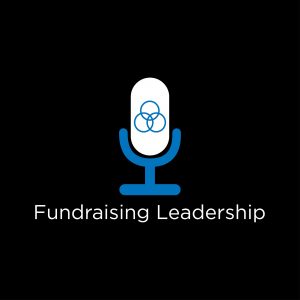
Master the Art of Coaching: Essential Skills for Leaders
Leadership is no longer defined by barking orders and expecting compliance; in today’s dynamic work environments, the leaders who stand out are the ones who master the art of coaching. Coaching is a subtle yet powerful art of guiding, not directing, and helping individuals and teams to reach their full potential. While it may sound simple, effective coaching requires distinct skills and principles.
In this episode, Michelle and David unpack the secrets behind great coaching and explore how mastering coaching techniques can transform leaders into catalysts for growth and innovation.
Whether you’re an aspiring leader, an experienced manager, or an executive, understanding and implementing these coaching essentials will redefine your leadership approach and your teams’ success.
Defining Coaching: What It Is (And Isn’t)
Before we discuss the specifics of coaching, capturing its true essence is vital. Coaching is not consulting or mentoring. Its core is rooted in a process where the coach facilitates the client’s (coachee’s) thinking. It’s about asking the right questions to help clients explore challenges, set goals, and discover or unlock their solutions. Unlike consulting or mentoring, coaching refrains from giving direct advice or steering the problem-solving process.
The Power of Open-Ended Inquiry
At the heart of coaching lies the ability to ask open-ended questions. These questions cannot be answered with a simple ‘yes’ or ‘no.’ Open-ended inquiries encourage expansive thinking and problem resolution. This technique digs deeper into an individual’s thought process, challenges assumptions, and creates innovative strategies.
Active Listening and Empathy
Coaches are active listeners. This means not just hearing words but also understanding emotions and unspoken messages. Active listening is paired with empathy. Coaches build trust and create a safe space for the coachee to express themselves fully.
Championing and Challenging
A great coach balances support with challenge. The support comes from championing the coachee’s ambitions and boosting their confidence. Challenging involves:
- Pushing them beyond their comfort zones.
- Inviting them to consider new perspectives.
- Examining their thought processes.
This balance helps individuals experience growth on their terms and at their own pace.
Leveraging Strengths and Resources
Coaching is future-focused, emphasizing leveraging a coachee’s strengths and available resources. A strengths-based approach empowers individuals by focusing on what they’re naturally good at, while resource utilization ensures that solutions are practical and implementable within existing constraints and opportunities.
The Dynamics of Leadership Coaching
Coaching isn’t a one-size-fits-all activity; the dynamics drastically change when coaching leaders. Leaders who coach need to operate from a place of equality. They’re facilitators who guide other leaders through their professional challenges. This shift in coaching dynamics helps leaders offload their anxieties and rethink their strategies with fresh perspectives.
The Art of Compassionate Inquiry
Leaders who coach use compassionate inquiry to guide their teams. Compassionate inquiry involves inquiring into individuals’ and teams’ experiences with a gentle yet insistent curiosity. It respects the emotional nuances of the work environment and uncovers the deeper reasons behind behaviors and decisions, leading to more effective coaching.
Embedding a Coaching Culture in Your Organization
One-on-one coaching is powerful; an organization committed to a coaching culture is transformational. For leaders who want to take coaching beyond their practice, embedding a coaching culture is the next step. This involves training more people within the organization as coaches and orienting the company towards a coaching mindset, enhancing communication, collaboration, and problem-solving.
The Road to Ongoing Self-Development
Finally, one of the most critical aspects of mastering coaching skills is recognizing that it’s a continuous learning process. Leaders who coach never stop learning; they always seek to improve, learn new techniques, and expand their awareness. Self-development is not just about being a better coach; it’s about being a better leader and, most importantly, a better human being.
Coaching is a multifaceted skill set that takes time and practice to perfect. Leaders can create more engaging, empowering, and productive work environments by incorporating the essentials outlined in this podcast.
Remember, coaching is not about having all the answers—it’s about asking the right questions and empowering others to discover the answers within themselves. Leaders who understand and apply these principles are poised to inspire innovation, foster autonomous high performance, and support their teams in reaching new heights.